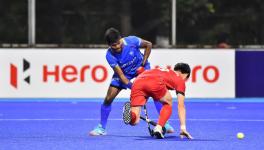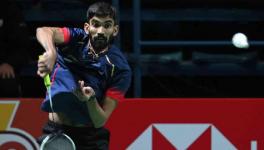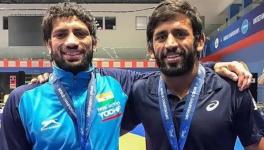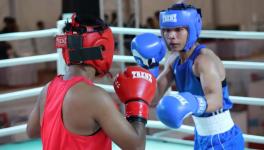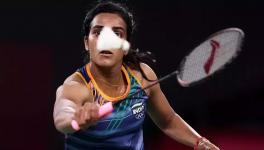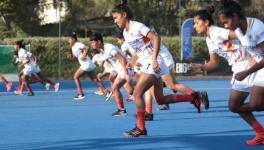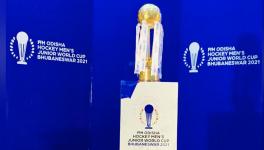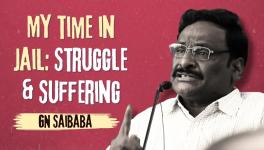The Alchemy of Desire: Belgium’s Decade Long Journey to the Pinnacle of Hockey
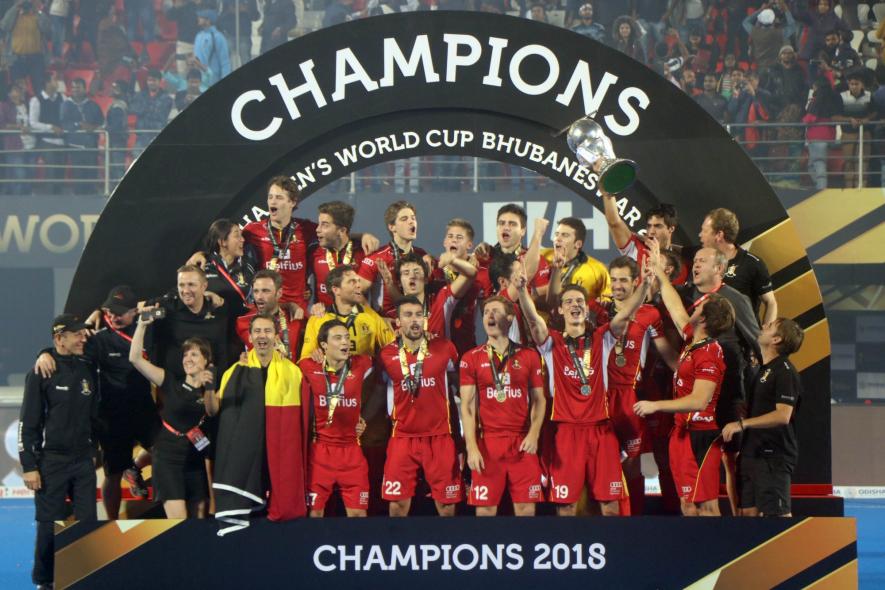
After defeats in two successive finals over the last couple of years, Belgium beat the Netherlands in a shootout to finally taste gold, winning the FIH Men’s Hockey World Cup (Pic: Vaibhav Raghunandan).
Belgium coach Shane McLeod believes in destiny. So do his men, who have faith in the inevitability of what’s written in the stars. Ahead of their FIH Men’s Hockey World Cup final against the Netherlands, the Belgians, and their New Zealander coach McLeod apparently kept talking about how they could hear the knock of destiny as they went through the motions at the World Cup.
After edging out the Netherlands in a nerve-wracking shootout, which came after the scores were level at 0-0 in regulation time despite some technically rich yet cagey hockey, it was no doubt the time for Belgians to romanticize about their journey to gold. Destiny, dream, stars, passion, surreal… the words used to describe the moment could be strewn into an anthem, which in turn, would inspire players from the country for many generations to come.
Odes and anthems will be sung in the coming days, but it will invariably be to describe a rather less poetic, pragmatic and scientific side to this Belgian victory — 15 years of systematic planning, peerless execution of development programmes, and sheer hard work on the turf. The development programmes addressed not just the players across age groups, but also the coaches. Experts were roped in abroad to not just train players, but the coaches as well, ensuring sustained developed for the future. India, please take note.
That has enriched the Belgian style of hockey, which is a mix of the best of all worlds. “The style and influences are many,” says coach McLeod. “For instance, I am from New Zealand. We play a style with incorporates the best from all worlds, and have Asian influence as well.”
From the way Belgium went about the tournament, it is clear that actually they left nothing to chance, nothing to the whims and fancies of destiny. They had a larger plan for the tournament — the secret to peaking at the business end — and a specific plan of action, tactics rather, in place for all the teams they faced and overcame. All that was left was one of their biggest foes, the demons from two lost finals — the 2016 Rio Olympics finale against Argentina and the 2017 European Championship to the Netherlands.
Video | FIH Men's Hockey World Cup: For the Fans, By the Fans
The difference between gold and silver is very fine. At the same time, the journey from silver to gold involves a rather tricky leap over the chasm that separates sporting excellence and greatness. One could never plan for demons, but knowing them certainly helps, or so believes Belgian skipper Thomas Briels.
“I guess like they say, one has to lose a final to win one,” he says.
Now that they have won it, on the biggest stage in hockey, Belgian hockey can’t afford to sit back and relax. Hockey evolution, in fact, is a bit like any hockey game. A goal or two doesn’t guarantee victory. The moment you sit back, the opponents will come and drill in four to shatter your resolve.
Belgian hockey, in the last 10 years, have been resolute in what their priority is. From being perennial “underdogs” to world champions in a little over a decade, Belgium’s rise to the top has been meteoric, spectacular and steady.
In 2008, they qualified for the Beijing Olympics, a big achievement for them at the time. They finished ninth in the tournament out of 12 teams. Eight years later, they won silver. At the next Olympics, they will win gold, claims Alexander Hendrickx, this World Cup’s top scorer, and Belgium’s talismanic striker.
Read More | Hockey India: Ruling With an Iron Fist
And Hendrickx will be taken with all seriousness even if he is calling the hockey result of Tokyo Olympics two years before the Games. That’s the takeaway from this tournament for Belgian hockey. “We have to keep our momentum going. Many tournaments are coming up,” says Hendrickx. “Of course, looking ahead, we will enter each field not as underdogs anymore. We are the world champions, and in two years time, we will be ready to go one rung up at the Olympic Games.”
Hendricks, Briels, Vincent Vanasch, and Florent van Aubel were all just about graduating from the junior level during the 2008 Olympics, which was the first landmark in the Belgian journey of renaissance.
“There it began”, says Van Aubel. “I was 18 then and we qualified for the Olympics. Coming back from the Games, we were again back to the drawing board, back to the grind. While we trained and developed together as a team, things were also moving in the right direction at the grassroots with age-group programmes ensuring a steady supply of great talent to the national team set-up.”
The Belgian programme is set up to ensure that this generation of Olympic medallists and World Cup winners are not their golden bunch, but the first of many golden generations. The World Cup final saw the rise, to full potential, of a new powerhouse in world hockey.
Germany, the Netherlands, Australia, Argentina, and now World No. 1 Belgium.
At this point, one can’t help but remember that India almost beat Belgium in the group stage in Bhubaneswar, and had a very narrow loss to the Netherlands, the other finalists. Then again, those results mean very little as India, world No. 5 at the moment, still linger around as an outsider to global titles which is the monopoly of Big Four… Five rather, now that Belgium are kings.
Video | The Business End of the FIH Men's Hockey World Cup
The India coach spoke about learnings from the match against Belgium earlier in the tournament. The Indian hockey policy makers could do better by taking a leaf or two out of their Belgian counterparts. While 2008 has been the turnaround landmark for Belgium, India had a rather inglorious milestone the same year — they failed to qualify for the Beijing Olympics, the first time in the hockey tournament’s history.
Indian hockey administration as well as the team went through a rebuilding phase at that point, the first focus being the year 2010, when India hosted the World Cup as well as the Commonwealth Games in New Delhi.
From there till now, India have had little highs and more lows, the 12th and last place finish in London Olympics, no medals in the two World Cups, and a less than perfect outing at the last Olympics and this year’s Asian Games and the Commonwealth Games.
India, with far more resources, player base at the grassroots, and money than Belgium, fail to make one golden generation, forget making the base for countless to flourish.
Read More | Golden Freedom: Legacy of Independent India’s First Hockey Olympic Gold in 1948
The fault lies in how we approach development. It is not a holistic approach and the goals, invariably are short term. From 2008, our goal was set for 2010 and not for 2018. Belgium set their target as 2020, and in that extended timeline, they have managed to scale one peak after another. For them, the tournaments and the victories over the years boil down to just chapters of a larger book they want the players to write, generation after generation.
For us, the goals are pretty immediate and shallow. Take for instance Hockey India’s decision to stay out of the new FIH Pro League, meant for the top sides in the world (nine-team competition). India opted out of the league at the conception stage, and chose instead for the second tier global league World Series. Both the leagues would be used to select teams for the Tokyo Olympics qualifying tournament. It was explained at the time that Hockey India’s decision to stay in the second rung was to ensure the team doesn’t miss out of qualifying for Tokyo.
And so, for the immediate gain of qualifying for the Olympics, India have forsaken a better avenue for long-term development, getting the players competition on a regular basis against the best in the world. So, the team would eventually qualify for the Games. And then, in all likelihood, their challenge would whimper to a premature exit like what happened in Odisha.
Stars and destiny it is apparent are not set by the almighty, but by the teams themselves, by setting the right trajectory much in advance, beyond Olympic cycles and continental games. That ideally should be what India aspire for, or remain forever relegated to receive obscure awards such as the one they got at the Kalinga Stadium after the final — the prize for the “best team celebration”.
The stars, fireworks, the odes, and the trophy went to the Belgians, with the Dutch and Australians completing the podium.
Get the latest reports & analysis with people's perspective on Protests, movements & deep analytical videos, discussions of the current affairs in your Telegram app. Subscribe to NewsClick's Telegram channel & get Real-Time updates on stories, as they get published on our website.










